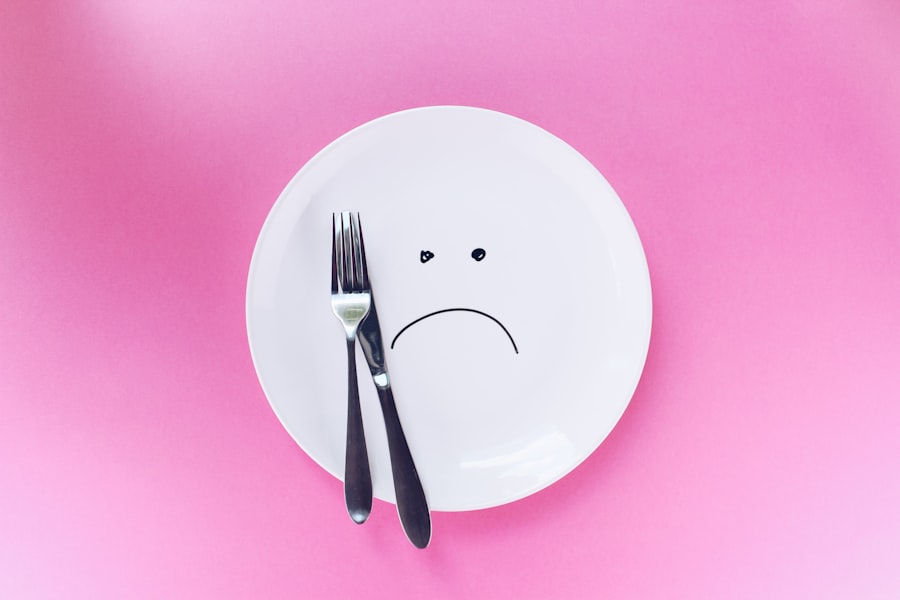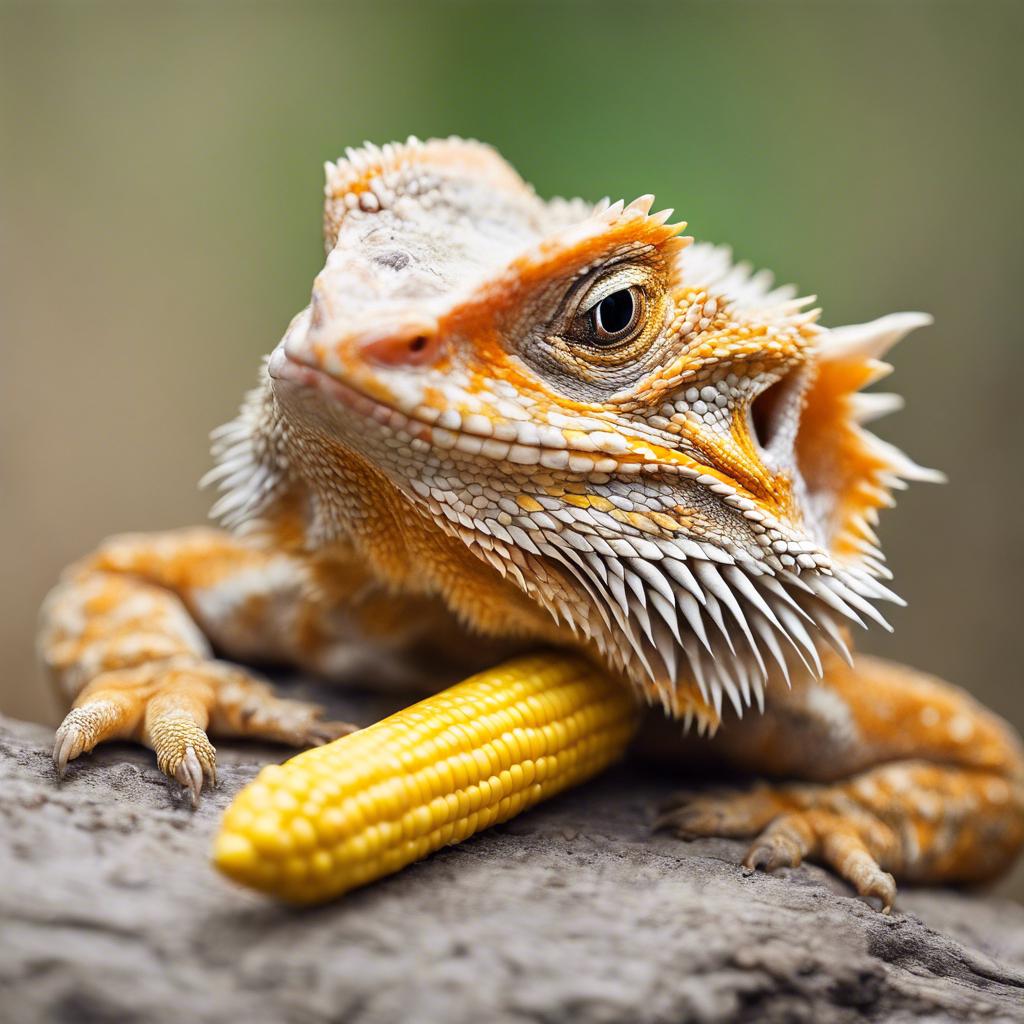Bearded dragons are popular reptile pets known for their unique appearance and docile nature. As responsible pet owners, it is crucial to understand their dietary needs to ensure their overall health and well-being. A balanced diet is essential for bearded dragons, as it provides them with the necessary nutrients to thrive. In this article, we will explore the question of whether or not bearded dragons can eat corn, examine its nutritional value, discuss how to prepare corn for bearded dragons, and provide tips on creating a balanced diet for these fascinating creatures.
Key Takeaways
- Bearded dragons require a balanced diet to maintain their health and wellbeing.
- Corn can be fed to bearded dragons in moderation, but it should not be a staple food.
- Corn is low in nutritional value for bearded dragons and should be supplemented with other foods.
- Corn should be cooked and cut into small pieces before feeding to bearded dragons.
- Corn should only be given as an occasional treat and not as a regular part of their diet.
Can Bearded Dragons Eat Corn?
The answer to whether or not bearded dragons can eat corn is a bit complicated. While corn itself is not toxic to bearded dragons, it should not be a staple food in their diet. Bearded dragons are omnivores and require a varied diet that consists of both animal protein and plant matter. Their diet should primarily consist of leafy greens, vegetables, fruits, and insects. Corn, on the other hand, is high in carbohydrates and lacks some essential nutrients that bearded dragons need.
Nutritional Value of Corn for Bearded Dragons
When considering the nutritional value of corn for bearded dragons, it is important to understand its composition. Corn is primarily made up of carbohydrates, with a relatively low protein content. It also contains some vitamins and minerals such as vitamin C, vitamin B6, magnesium, and potassium. However, compared to other vegetables and leafy greens commonly fed to bearded dragons, corn falls short in terms of nutritional value.
Leafy greens like kale, collard greens, and dandelion greens are excellent sources of calcium and other essential nutrients for bearded dragons. These should make up the majority of their plant-based diet. Vegetables such as bell peppers, squash, and carrots provide additional vitamins and minerals. Fruits like berries and melons can be given as occasional treats due to their higher sugar content. In comparison, corn does not offer the same nutritional benefits as these other foods.
Preparing Corn for Bearded Dragons
If you choose to feed corn to your bearded dragon, it is important to prepare it properly. Raw corn should never be fed to bearded dragons, as it is difficult for them to digest and can cause digestive issues. Instead, corn should be cooked or steamed before being offered to your pet. This helps break down the starches and makes it easier for them to digest.
It is also crucial to remove the corn kernels from the cob before feeding them to your bearded dragon. The cob itself is indigestible and can cause blockages in their digestive system. Cut the kernels off the cob and ensure they are bite-sized pieces that your bearded dragon can easily consume.
Corn as a Treat for Bearded Dragons
While corn should not be a staple food in a bearded dragon's diet, it can be offered as an occasional treat. Treats should make up no more than 10% of their overall diet. Corn can provide some variety and enrichment for your pet, but it should not replace the essential leafy greens and vegetables that they need for optimal health.
When offering corn as a treat, it is important to monitor your bearded dragon's response. Some individuals may have difficulty digesting corn or may develop loose stools after consuming it. If you notice any adverse reactions, it is best to discontinue feeding corn and consult with a veterinarian.
Bearded Dragon Care: Feeding and Nutrition

Feeding and nutrition are crucial aspects of bearded dragon care. As mentioned earlier, a balanced diet is essential for their overall health and well-being. In addition to leafy greens, vegetables, and occasional treats like corn, bearded dragons require a source of animal protein. This can be provided through feeding them live insects such as crickets, mealworms, and dubia roaches.
It is important to ensure that the insects you feed your bearded dragon are gut-loaded, meaning they have been fed a nutritious diet before being offered to your pet. This ensures that the insects themselves are a good source of nutrition for your bearded dragon. Dusting the insects with a calcium supplement is also recommended to ensure they receive adequate calcium.
Bearded Dragon Care: Hydration and Water
Hydration is another crucial aspect of bearded dragon care. Bearded dragons obtain most of their water from the food they eat, but it is still important to provide them with access to clean water. A shallow dish of water should be available in their enclosure at all times. However, it is important to note that bearded dragons may not drink water directly from the dish. Instead, they may prefer to soak in the water to hydrate themselves.
In addition to providing a water dish, it is also beneficial to mist the enclosure with water to increase humidity levels. This can help prevent dehydration and aid in shedding, as bearded dragons require a certain level of humidity for proper skin shedding.
Bearded Dragon Care: Environmental Factors
Environmental factors play a significant role in a bearded dragon's health and nutrition. Bearded dragons require a temperature gradient in their enclosure, with a basking spot that reaches around 95-105°F (35-40°C) and a cooler side that ranges between 75-85°F (24-29°C). This allows them to regulate their body temperature and aids in digestion.
Proper lighting is also essential for bearded dragons. They require both UVA and UVB light to synthesize vitamin D3, which is necessary for calcium absorption. UVB light should be provided through a reptile-specific UVB bulb, and it should be replaced every 6-12 months to ensure its effectiveness.
Health Issues: Corn-Related Problems in Bearded Dragons
Feeding corn to bearded dragons can potentially lead to health issues if not done correctly. As mentioned earlier, corn should not be a staple food in their diet due to its high carbohydrate content and lack of essential nutrients. Feeding too much corn can lead to weight gain and nutritional deficiencies.
Additionally, the indigestible cob of the corn can cause blockages in a bearded dragon's digestive system. This can lead to serious health issues and may require veterinary intervention. It is important to monitor your bearded dragon's stool consistency and overall health when introducing new foods, including corn, into their diet.
Making Informed Choices for Your Bearded Dragon's Diet
In conclusion, while bearded dragons can eat corn, it should not be a staple food in their diet. Corn lacks the essential nutrients that they need for optimal health and should only be offered as an occasional treat. Leafy greens, vegetables, and live insects should make up the majority of their diet.
As responsible pet owners, it is crucial to make informed choices about your bearded dragon's diet and nutrition. Providing a balanced and varied diet, along with proper hydration and a suitable environment, will help ensure their overall health and well-being. Regular veterinary check-ups are also recommended to monitor their health and address any potential issues. By following these guidelines, you can provide the best care for your beloved bearded dragon.
If you're curious about what foods are safe for your bearded dragon to eat, you might be interested in an article on Reptile Wizard's blog that explores whether bearded dragons can eat corn. To find out if corn is a suitable addition to your pet's diet, check out their informative post here. While you're at it, don't forget to explore their website to learn more about reptile care and keeping, such as their page on whether bearded dragons can eat black olives. Happy reading and keeping your scaly friend healthy!
FAQs
Can bearded dragons eat corn?
Yes, bearded dragons can eat corn, but it should only be given to them in moderation.
Is corn a good source of nutrition for bearded dragons?
Corn is not a good source of nutrition for bearded dragons as it is high in carbohydrates and low in protein and other essential nutrients.
How should corn be prepared for bearded dragons?
Corn should be cooked and cut into small pieces before being fed to bearded dragons. It is also important to remove the husk and silk before feeding.
Can feeding too much corn be harmful to bearded dragons?
Feeding too much corn can be harmful to bearded dragons as it can cause digestive issues and lead to obesity.
What other foods should bearded dragons eat besides corn?
Bearded dragons should have a balanced diet that includes a variety of insects, vegetables, and fruits. Some good options include crickets, mealworms, kale, collard greens, and strawberries.

